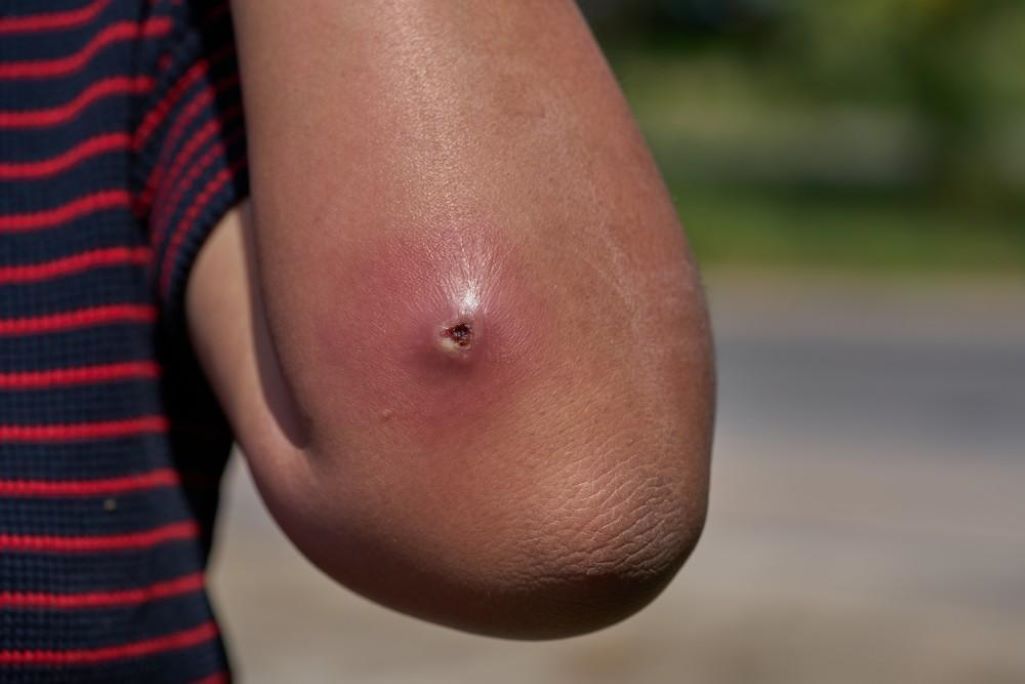A painful, red, swollen lump on your body might look like a minor skin problem — but it could be something more serious. An abscess is a common but often misunderstood condition that can cause severe discomfort and even dangerous complications if left untreated.
In this blog, we’ll discuss everything you need to know about abscesses, their symptoms, causes, and the importance of safe and timely drainage, with expert insights from Dr. Dhananjay Patil, General Surgeon at Chetna Hospital, Chinchwad.
🔬 What Is an Abscess?
An abscess is a collection of pus that forms in a tissue, typically due to a bacterial infection. It occurs when your body’s immune system tries to fight off infection, trapping it under the skin and forming a swollen, inflamed lump. The pus inside contains dead tissue, white blood cells, and bacteria.
Abscesses can occur anywhere on the body but are most commonly found in the:
- Armpits
- Buttocks
- Groin
- Face or neck
- Around the anus (perianal abscess)
- Inside the body (e.g., liver abscess, dental abscess)
⚠️ Common Symptoms of an Abscess
The most noticeable symptom is a painful, swollen lump. Depending on the location and severity, you may experience:
- Redness and warmth around the lump
- Throbbing pain
- Tenderness to touch
- Pus or fluid leaking from the lump
- Fever and chills (if the infection spreads)
- Fatigue or general unwell feeling
🤔 What Causes an Abscess?
Abscesses usually form due to bacterial infections, especially Staphylococcus aureus, entering the body through:
- Cuts, abrasions, or insect bites
- Ingrown hairs
- Blocked sweat or oil glands
- Poor hygiene
- Skin conditions like acne or eczema
Certain risk factors make individuals more prone to developing abscesses:
- Diabetes
- Weakened immune system
- Obesity
- Smoking
- Poor nutrition
- Use of immunosuppressant drugs
❌ Why You Shouldn’t Squeeze or Pop an Abscess
Many people make the mistake of trying to “pop” an abscess at home, thinking it will drain and heal. However, this is dangerous and ineffective.
Attempting to drain an abscess yourself can:
- Push the infection deeper into the tissue
- Spread bacteria to surrounding areas
- Lead to more swelling and pain
- Cause scarring or incomplete healing
- Increase the risk of systemic infection or sepsis
Dr. Dhananjay Patil strongly advises against home drainage attempts. Proper incision and drainage in a sterile, clinical environment are the safest and most effective treatment.
🏥 The Right Treatment: Incision and Drainage (I&D)
When an abscess does not heal on its own or gets larger and more painful, it needs medical intervention. The gold standard of treatment is Incision and Drainage (I&D) — a minor surgical procedure done under local anesthesia.
✂️ Procedure Overview:
- Local anesthesia is administered to numb the area.
- A small incision is made over the abscess to allow pus to drain out.
- The area is gently cleaned and irrigated.
- Sometimes a small gauze (packing) is inserted to allow continued drainage.
- The wound is covered with a sterile dressing.
- Antibiotics may be prescribed depending on the severity and signs of infection.
⏱️ How Long Does It Take to Heal?
With proper care, most abscesses heal within 5 to 10 days after drainage. The exact time depends on:
- The size and depth of the abscess
- Whether packing was used
- The patient’s overall health and immunity
Follow-up visits may be needed to:
- Change dressings
- Monitor healing
- Remove any packing
🩹 Post-Procedure Care Tips
To ensure faster and infection-free recovery, follow these instructions:
- Keep the wound clean and dry.
- Follow dressing change instructions carefully.
- Take all prescribed antibiotics on time.
- Avoid tight clothing over the area.
- Don’t apply creams or ointments unless advised.
- Watch for signs of recurrence like swelling, redness, or pus.
If you develop fever or worsening symptoms, contact your surgeon immediately.
For Consultation Contact us on 8390861787 / 9158681123
Website – www.chetnahospital.co.in
Address – Chetna Hospital, Sambhajinagar, MIDC, G Block, Near Rotary Club, Chinchwad 411019
.
.
.
#pune#pcmc#chinchwad#hospital#medical#medicalservices#health#healthcare#surgery#generalsurgery#medicalprocedure#generalsurgeon#generalsurgeoninchinchwad













